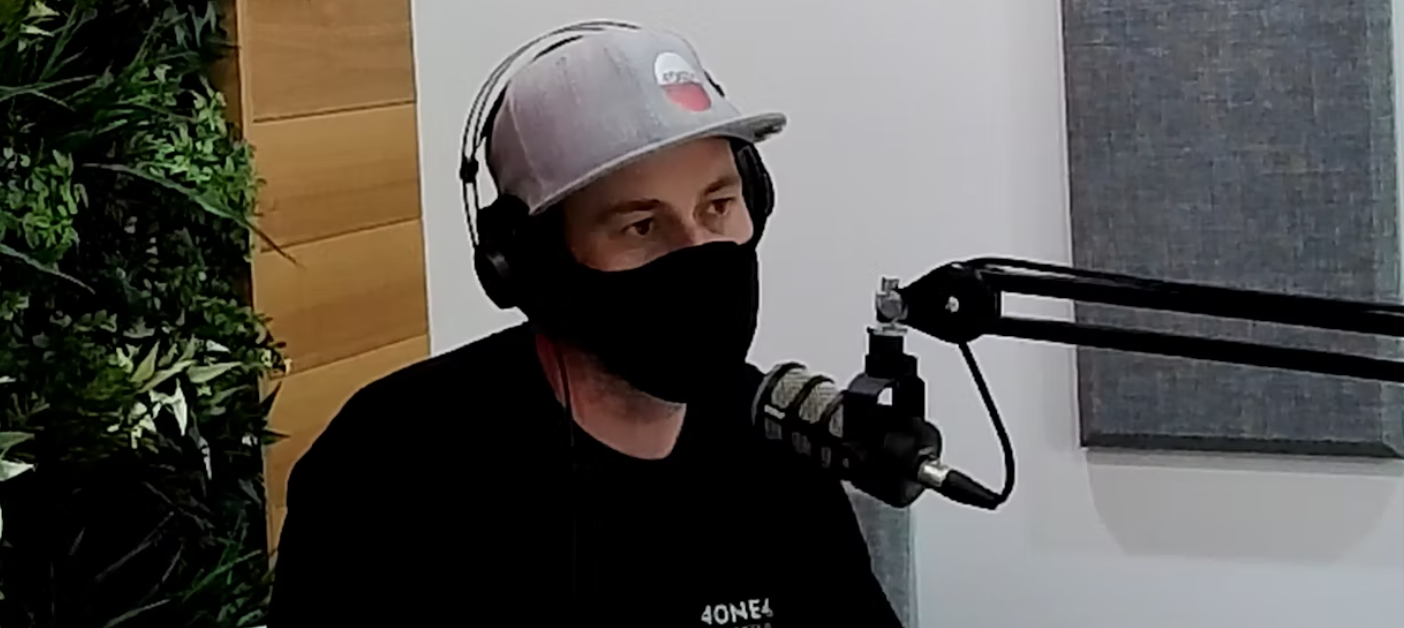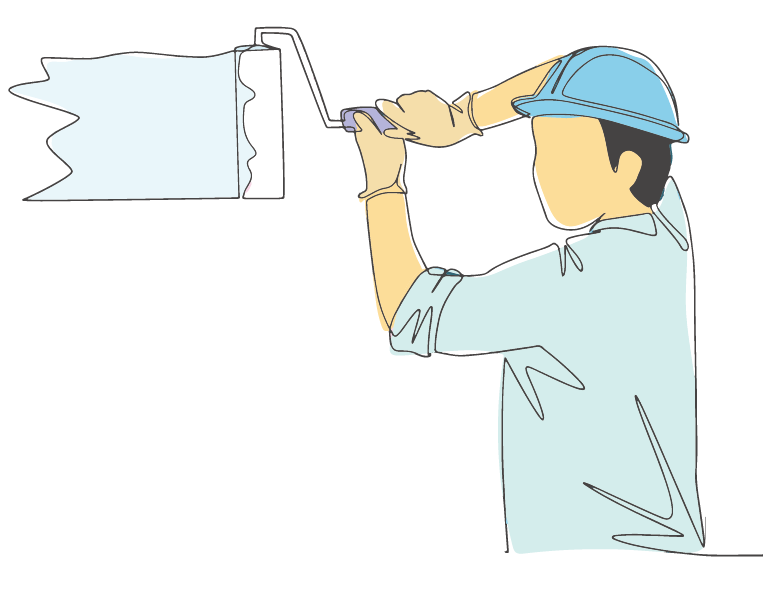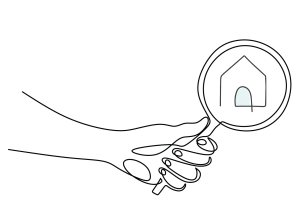| Episode: | E110 |
| Show Title: | Modern Marketing Tools in the Pandemic & Beyond |
| Cast: | Patrick Berry & John McGregor |
| Guests: | – |
| Show Length: | 24 minutes 55 seconds |
Patrick: But as time has gone on, we’ve discovered that we need to, oh! Market’s changed. The market now is you need to show it in its true life because people don’t want to get there and get disappointed. [John agrees] So technology’s improved, things have become better– like we’ve got the tools now to really showcase it in what it’s true to form life is and I think that’s a real key aspect now of how we market properties and how we shift people to, I guess, trust us to be able to buy a house off the internet without looking at it.
[intro music]
Going once… going twice… SOLD! You’re listening to The Property Pod!
Patrick: All right, everyone! Welcome to another edition of The Property Pod! It is the second one for the year and I’m excited to be joined here at the desk by John McGregor and we’re actually flying solo this week, John Mac!
John: Yeah exactly. Because we’re one down from the room but I believe we’re one extra for the office, I believe.
Patrick: Yes, I was super excited. Aaron and Sarah have actually brought a new baby into the world–a little baby boy!
John: Yeah man. That’s awesome. “Henry” I think, isn’t it?
Patrick: Yeah, Henry. That’s correct. He announced it to our Facebook group last night so super excited for the family; super excited to get him on the mics one day. I’m sure he’s got a lot to say.
John: Yeah well, I was super excited when he announced it as “Richie Benaud ” but then, you know, declined that and put back into “Henry”. I thought, “Oh, Richie! Richie would work” I reckon ,you know, that’d be alright.
Patrick: I’m glad you read his message on Facebook [laughter] the same as I did last night because I read and thought, “Oh Richie, what a great name!” and then Abbey’s come home and she’s like, “Oh Aaron’s got a new baby, Henry.” I’m like, “what are you talking about?” [laughter] So it shows that we both read the message really well last night but…
John: And this is why reliance on text messages is not always appropriate, at least, because you always misread or read into what you want. [laughter]
Patrick: Exactly right. But as much as we’d love to talk about this exciting news of the new Property Pod family member, we do have some real estate to talk. [John agrees] Lucky, like always, Niño has prepared some stuff for us yes and I have to say I’m glad he has because you know, it’s hard enough for me working the buttons but it’s even harder for John and I to [ __ ] an episode. Wouldn’t you agree, John? [laughter]
John: Yeah yeah, I wouldn’t rely on that as a guarantee, put it that way… [laughter]
Patrick: So I thought this year, oh I didn’t think. Niño thought that you know COVID officially hit Tassie. We’re getting case numbers pretty regularly now and we’re basically now part of Australia, you know, we’re no longer fortress TAS like we were [John agrees] and I thought it might actually be a really good opportunity to take a look back over the last 12 months and have a look at how the pandemic has affected how we buy and sell real estate in Australia and the different technologies that always existed but not necessarily were used on a day-to-day method.
John: Yeah, exactly. Well I suppose in Tasmania too, for anyone who’s familiar with it, it’s always that, “look, we need your signature on the piece of paper.” So, you have to either physically see the property or you need to sign it, otherwise, it’s not legitimate. And there’s just been a change in people’s way in which they approach either making offers, inspecting properties, applying for applications. So, we were very protective in the sense that you needed something like that physical site or a physical signature where now, it’s just relaxed in a big way because it had to, you couldn’t protect it so much.
Patrick: Well, I think that’s exactly right. We’ve had to become more fluid and I think everyone has become fluid in all industries. And even though buying a house is such a big investment and a big asset, we’ve just had to sort of adapt to like everybody, I guess, and it starts right at the photos like, right at the very beginning and how we market properties, I know personally, me, when I’m getting a property ready or market or talking to a vendor at an appraisal, it’s about explaining to them that if the internet allows a feature to go onto it, we should include it in this marketplace.
John: Sure. That makes sense.
Patrick: And I guess, what I mean by that is just all the different elements like obviously, everyone does photos–that’s pretty stock standard, a floor plan these days is pretty stock standard. But if they’re going that little bit extra and adding some extra things that they’re available to use as tools, why not use them in this marketplace?
John: You’re talking about like the videos, the 3D tours, that kind of stuff?
Patrick: Yeah, definitely. So, let’s start with drone photography. It’s a buzzword. Everyone likes drone photography but what does it actually do? Well probably on a residential property, not a huge amount, but maybe on a rural property, it allows you to sort of see the entire surroundings of the property. You can outline the boundaries to show where property sort of starts and finishes, so to speak.
John: Well, when we got up at the top of Glenorchy which was like 80 to 90% of it was old bush. But the government overlay wasn’t great but you still had underlying potential roads that would go through that block eventually that was on the title. So, at least when we had a nice clear picture of the drone shot and then could actually sit there with the purchaser and map that over what was current not seven or eight years ago or something like that. That was for them to be able to see, “Okay, that’s where I’d walk. So I’d walk in this direction, walk in that direction I can come back around” so they didn’t get lost in the bush and then turn into a missing person’s case. [laughter]
Patrick: And look, drone photography, I said a moment ago, it doesn’t have any place in residential but when you’ve raised that sort of example there, like it’s great if you’ve got a property that is close to services like maybe you’ve got an elderly couple looking to downsize and the homes two blocks from the doctor surgery or the chemist and it’s walking distance, being able to map that out and show people how close. I think it’s a huge advantage.
John: Well, I mean the other thing, too, Google maps is an insane technology but it’s still not today [Patrick agrees] and it’s where the garage could be added or you know, the grass could be a different color or the roof could be in a completely different condition. In the end, people as much as they try and rely on the past, need to know what’s current [Patrick agrees] and the true full visual representation of that makes sense.
Patrick: And I think you’ve just raised a really valid point into another different technology we use in the way of Matterport tours. Like photos are fantastic but they only show you what the photographer wants you to see [John agrees] and in a day and age where we are now where borders are closing and opening, people are worried about getting on flights to be able to come inspect a property in person, a Matterpor tour allows you to walk through the home like you’re physically in it and I think that can be a huge advantage as well.
John: And spend the time staring at all the corners and trying to find all the things wrong with it.
Patrick: Oh exactly! And even more so, just getting a really good sense for it before you commit to viewing the property in person.
John: And on the other side, too, is because we obviously had proven the fastest selling state multiple times that when people only had 15 minutes to walk in through a home and then they weren’t granted a second inspection, at least they could view it before on the day and then go back home and continue to view it now that that 3d tour starts to make more context and better sense, so you can have 30 inspections if you want on the property on your desk at home, whereas it’s just you don’t have that freedom in person.
Patrick: It’s funny you said it. I’ve never actually thought about it like that but that’s a great way to sort of explain to the purchaser the value of the Matterport tour. For me, I also thought about it in a different way. Like as we get more cases here, people are getting a bit nervous to go to restaurants, to bars, to just general places. Like gone are the potential days of going on Saturday and going to five or six Open Homes one after the other because people are nervous about that aspect.
John: Yeah, exactly. Exactly.
Patrick: So, I think the Matterport allows you to really hone in on what it is you’re actually after in a property and then you can cut that potential sort of big shopping list down to just a key couple that are really interesting to you so that you can minimize the amount of properties you head to on a Saturday.
John: Absolutely. And the other thing, too, I don’t think people notice is that it’s got a measurement tool in there because they’d be like, “oh can I bring the measuring tape?” I was like well, they’ve actually got it on the 3D tour and do that like, “no no, I just want to bring my tape and then they got the tape wrong.” It’s like if we just use the tour in the first place, it would be fine. [laughter] But the accuracy of that it’s like 99.98 or something.
Patrick: I think you’re about spot on there. It’s 99.9 something [ __ ] like. In other words, what you see with your eye is what it is in real life which is what I think the real power of the Matterport tour is.
John: Yes, you can just copy paste your catch onto it–which I thought is silly it sounds.
Patrick: Well, you know, you laugh about that but Aaron and I, we sit in a lot of conferences digitally at the moment because we can’t attend them in person and we sat in on a Matterport one recently and that’s coming. You’ll be able to go and get your fantastic furniture couch off a drop down and actually physically put it into the room to see how it’ll fit.
John: I love that, I love that. Well, it’s coming from us like my partner’s got just a stupidly big leather couch that she loves and it’s hard to find places that actually fit it, [laughter] I know mine doesn’t, but it’s like we’ve got the couch–it’s good catch, don’t get me wrong. But sometimes, you can just see people just bought the wrong size couch for the wrong house. At least, to be able to sit there and map that on there, you know a lot of people, too, can’t visualize very well.
So, I think that extra level of security where you take our rental properties, for example, I know in Hobart it was a common thing to say look you’ve had to inspect it personally or someone had to inspect it in person on your behalf and again, those two things have just been taken out of the equation. So, all that’s left really is these 3D tours and so for us to relax… What would you say are qualifications to be able to apply for it and then giving the people the extra tools to have a little bit more confidence in doing it and if you could sit there and do the 3D tour and attach your furniture into it, that helps perspective like, “Okay good. Now I can go with this with
Confidence.”
Patrick: Exactly right. It really just helps nail down exactly what the home’s current condition is, what its potential future is, it really does help you get a better understanding. But you know, there’s some amazing tools around showing people what a house is like but then you really do still need to get to the traditional inspection and there’s been a bit of a change around that as well. I’ve noticed and I’m sure you have two over the last 12 months. Around two sections, one, how do you actually book into an inspection? and two, how can it actually be conducted these days? So, I know here in our office, not so much at the moment, but for a while last year, we were actually doing online bookings where we’d be able to give people access to our calendar and someone could then look and say, “well, I’m available at two o’clock on Tuesday.” John’s available then great and booking for that inspection. And just those little tools, I think it have definitely helped as well being able to get people booked in for an inspection but also then, just moving into like video tours, for instance, is another thing that’s really taken off.
John: Well, one thing that I thought was interesting, I still don’t have an answer for it yet, but the… I never have answers usually I just find things interesting most of the time–but there was the pre-booking element that had a much bigger uptake on the rentals than it did in the sales aspect. [Patrick agrees] It’s still a requirement of a physical, you know, not a physical–a phone call before the person would commit to it. It was a very much smaller uptake on sales we found than rentals, who knows why. But I mean, we had one that sold in South Hobart and this was like an application of all the digital tools we’re referring to because the client was moving from interstate. He couldn’t get down here. And then the owner was on the other side of the world and so he couldn’t print off and sign documentation and so therefore, we had to use the photos, the video, the facetime viewing, the 3D walkthrough tour, and then we had to do through the Docusign for the contracts on both ends of the spectrum and it wasn’t until the like two days before, he actually got the keys was he in a position to view the house and luckily, it was built bigger than what he thought he bought. [laughter]
Patrick: So, we undersold the property, he was excited when he got here.
John: In the end, like he said that the bedrooms felt a bit small but he knew what he was getting into. [Patrick agrees] And that I think is the important part about digital marketing and it’s honest digital marketing especially, I suppose, with the way that we do our photos here, it’s that they’re representative of what the actual room is, not super wide angle legends, which is going to make the person super disappointed.
Patrick: Yeah and I think that’s a key thing that people need to understand is that you’re right, probably five or six years ago, a lot of real estate agents did try to make a room feel better or bigger than what it was and they’d use trick photography to do so. But as time has gone on, we’ve discovered that we need to–oh, the market’s changed. The market now is you need to show it in its true life because people don’t want to get there and get disappointed so [John agrees] technology’s improved, things have become better, like we’ve got the tools now to really showcase it in what it’s true to form life is and I think that’s a real key aspect now of how we market properties and how we shift people to, I guess, trust us to be able to buy a house off the internet without looking at it.
John: I think that’s the big key because it’s not a means that people want to do it, it’s more so they have to do it. And if we do an honest digital marketing at least there’s for their sake, there’s not going to be as much hesitancy and there’s much worry on top of already what is, “oh my god, what the hell am I getting myself into?” Because it’s like a client, it’s like again, it wasn’t because he wanted to do it this way, it’s because it was a necessity to do it that way. And so, if we can use those resources to help it as easy it can be for those guys to have confidence in it, well, that’s phenomenal because that’s in some ways, what you would use a buyer’s agent to do to a smaller extent, I’m not going to do a disservice to the other elements that they do, but you’re basically giving it to someone to say, “look, do you trust that I would enjoy this?” like “Yes, well hopefully” then if you don’t have those resources, well, you can hopefully get 90% of the way there for yourself.
John: Yeah and I think they’re like as good as the tech is, just that video inspection, if you can’t inspect in person, you can’t hide anything in a video inspection–like you can try potentially, but as a purchaser, walking through the house with an agent you’re in a position, so “hang on, can you turn back to the left? I need to see” “oh no, there’s nothing to see here” “no, I need to see what’s in that corner”
John: “I can’t turn left, I’m an ambi turner like a zoolander. sorry, I can only turn right.” [laughter]
Patrick: “Well, turn right 360 degrees please.” [laughter] But that’s what I mean, like, we can still do the inspection. It may just not be in person, so we can get people to zoom in on stuff, we can get them to double check rooms for us like we can really still get a great sense of what a house looks like. And then so you know, technology allowed us to promote a property more through videos, allowed us to show people through a property easily without the need to see it in person, like the next thing that I’ve seen that’s probably changed and I’m sure I know you’ve done it as well. It’s just how we obtain offers on properties just to minimize the risk of how long we spend with a potential purchaser in a room. So, something that we’ve implemented here at 4one4 and I know some other agencies have started to implement is like offer forms rather than a full signed contract just like an expression of interest form, I guess, is the best way to describe it. Is that how you describe it, John?
John: Well, absolutely. And it’s mainly because Tasmania is unique in the way that the offer must be on the contract and that’s the only thing that’s going to make it legitimate. Well, the idea being that people say that’s the only legal way of submitting an offer, no it isn’t. You can express an offer in any way you want.
Patrick: We can write it on a napkin and both people sign it. [laughter]
John: Yeah yeah exactly. It’s just an expression of an offer, it’s not a contract. That’s two very different things. So, the idea being that you make that process ridiculously difficult for people when it’s already difficult to get there in the first place, it’s just madness.
Patrick: Well, on that, one thing I’ve seen heaps lately and it really grinds me the wrong way is like agents we’re all super busy at the moment because the market here in Hobart’s just ridiculous. We’re receiving multiple offers on every single property and agents have almost got to that point where they’re a little bit lazy and so they’re getting a blank contract, they’re flicking it through to a buyer that hasn’t bought a house for five or ten years, if at all, “fill this out and send it back to me signed and I’ll take it to the owner. I need to buy it tomorrow”
John: Yeah yeah, or “I need to buy this afternoon” “What am I even looking at?”
Patrick: Yeah and like they’re given a 12-page document with all this legal information on and they’re like, “what am I going to do with this?” like that is a great example of how you make something difficult when it doesn’t need to be difficult. And probably why we brought in our little offer form which is, like I said, it’s not a legally binding form, it’s just an expression of interest for us to understand what is it that the buyer is willing to pay and what the conditions behind that is and it’s a conversation starter for us and the vendor. Then, if the vendor likes a potential offer, we would then meet in person to go down the traditional path of getting a proper contract sign. But, I think a lot of people get confused and think that they have to go through that whole signature process to just have a conversation around price and we really don’t in today’s market. Ideally, we’d love to go down that path but we have to have that fluid aspect, I think, when presenting offers and obtaining contracts at the moment.
John: Well, I think generally speaking, most people probably just don’t want to spend the time on it, which is fair enough, it’s like we all know what we’re doing here, can we have some commitment that’s going to move this process along quicker? And so that idea where you can actually just… because once the agreements have all been agreed to, well then, okay let’s go dot the eyes and cross the T’s and get the signatures on the documents. And at least then, I’ve had, maybe, I couldn’t tell you how much we’ve done through this process now, but I might have had one person that had during this offer commitment… [Patrick: –stage] stage, you’d say, withdrew. So, it happens and it may change like if the market flips around again where it goes to a very much a buyer’s market as opposed to sellers market, who knows but, I mean the fact that’s only happened once, I don’t even know how many anymore, is to me enough data to say, “hey look, this is a pretty damn good process.”
Patrick: Yeah definitely. And it’s just making it easier and what works today may not work in 12 months time, but we work in the moments and what we need to all remember is that times are different, I never would have thought I’d be wearing a face mask every day to work two years ago, but here I am today. [John agrees] Yeah, I think all I can really say is that I’ve loved how our team has been able to adapt to the different methods that are available and utilise the tools to be able to help their clients still succeed and create exceptional results. And that’s what probably excites me the most over the last 12 months.
John: Well, there’s another thing that I thought was interesting. It was the iBuyer revolution that started in the US.
Patrick: We talked about this last year when or actually a couple of years ago now, when I went to Vegas for a conference.
John: That’s it. And obviously, two years have passed since then, we’ll just roughly say…
Patrick: I want to fill people in because I know we have a lot of like long-term listeners at the show that would remember my trip to Vegas and talking to people from Marvel and all these other great things that we got to do. But one of the things that was the hot topic was this big agency or a real estate.com type website called Zillow. And they had this feature on their website called iBuyer which is a thing where you’d click a button, put in your address, and Zillow would tell you using their data how much your house was worth. And from there, you could agree to that sale price and Zillow, the actual website, would just buy the property from you and money would go in your bank and you’re done and dusted, move out in 30 days. So, it removed the need for the real estate agent and it removed the stress for the purchaser or the vendor, I guess, because Zillow would buy it. They’d potentially rent it out ,they’d renovate it, they’d re-flip it, and sell it again, but they were taking all the risk on and two, it’s been going down the states for two years and there’s been a report that came out a couple other days ago about it.
John: Yeah, they’ve actually canned that entire side of their business.
Patrick: Which is amazing. They were so confident in it.
John: Well, it was cool. It’s worth having listened to the CEO’s feedback on it because he’s quite humble about how he said, “look, it was a risk and it didn’t work” realistically and this is about how it works with technology. It’s almost like an over-reliance on data isn’t good enough for real estate because by the idea like you said it was that their tech system was going to be smart enough to be able to determine what is a good purchase that they could renovate and flip at a profit. And it just wasn’t effective. Sometimes, a very small percentage because and then he went on to say is that the challenge of real estate is that the differences across property per property are massive and there’s real estate markets within real estate markets within real estate markets, and you could just say, “look, Australia grew up by 10%” but that’s why you have some suburbs grow by 50 and some decline but across the average, and so, what was happening is it if you imagine all those little in Australia, you go real estate.com appraisals, for example, that would just be on that page, and you go right, you take the lowest number and you sell at that price constantly, is that going to be successful? Well it just proved that, unfortunately, it wasn’t. But the other problem, too, is it is a slow conversion. You’ve got the house sales 30 days late after they bought it. And then you’ve got to get the quotes for the renovation, then the building materials, obviously, then you got the availability of labor for local markets and in the end, it just wasn’t a profitable model for them. [Patrick agrees] So, they had to remove, which I thought was fascinating because that was a huge move at scale that ended up proving unsuccessful, so to…
Patrick: Roll this out to almost 52 states in America, there weren’t very many that it didn’t actually roll out into, that’s crazy.
John: It was awesome. But obviously, it cost them a lot of money.
Patrick: And I think the other thing that they forgot to take into account that becomes really relevant with real estate is the human touch and emotion. A lot of people buy an emotion and a lot of agents will work with buyers to help them achieve their goals. [John agrees] And unfortunately, Siri and Google, they can’t do that. [laughter] All they can do is crunch numbers and say this is what it’s worth, but they can’t ascertain what the market shift is doing until it’s too late because they rely on those emotional buyers to settle and that data to come through and then that’s what allows them to model what a house might potentially work.
John: And that’s what’s so fascinating about real estate as an asset versus a lot of other classes where the share price is just going to go in and out and bang, it’s gone. But real estate doesn’t work that way and that’s where all these elements of the technologies you think you’re dealing with bots now, at the very end of the day, you are dealing with a person who’s on nine times out of ten making an emotional purchase. If we forget that, there’s every likelihood that the whole industry could stop to a degree because if the people can’t have that connection with that other person, the trust in them actually buying a property is going to reduce dramatically and slow down that whole point. So, even though we can have had that capacity to try and buy and sell property with the 3D tours and interestingly enough, I suppose, because everyone thought or saw that the prices were rising, everyone is just trying to buy, just getting in and moving quickly.But if that emotion sentiment changes and we returned to a little bit more of a steady market, I guess you could say, will people then continue to just to rely on these exclusively and be more comfortable with it? Or will they just then go back to try and slow down and have a much longer physical inspection which would be interesting to observe?
Patrick: Yeah, well I guess only time will tell and realistically, I think that’s a great spot for us to pin this conversation.
John: Yeah, man. My thoughts are done. [laughter]
Patrick: I’m really thinking freaking hell, without the third person here, it is hard to produce an episode together, so Aaron, we look forward to you coming back. I think he’s away from mum, so you guys are all stuck with us for a couple of weeks. I think we’ll try to get a couple of guests in though we’ve got a few staff that are reaching at the belt to get back on the mic, so yeah, we’ll have a bit of a rotating panel over the next couple of weeks and maybe, in another two or three years, we’ll reassess this topic and see what’s changed.
John: Yeah yeah, exactly. Love it, mate!
Patrick: But like always, thanks everyone for tuning in. It’s been a quick and sharp episode and I hope you guys enjoyed it.
John: All right, until next time!
John: See you, guys!
[extro & disclaimer]
You have been listening to The Property Pod, recorded and edited by 4one4 Media House in conjunction with 4one4 Property Co. This podcast is general information only and the thoughts and views expressed are the opinion of our panel and listeners should always seek to use their
own investigation into any topic we discussed to ensure they fully understand their own situation. It does not constitute and should not be relied on as purchasing, selling, financial, or investment advice or recommendations, expressed or implied, and it should not be used as an invitation to take up any agent or investment services. No investment decision or activity should be undertaken on the basis of this information without first seeking qualified and professional advice.

























